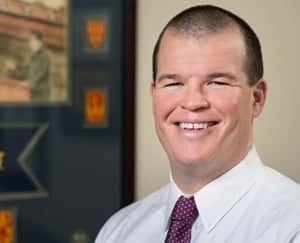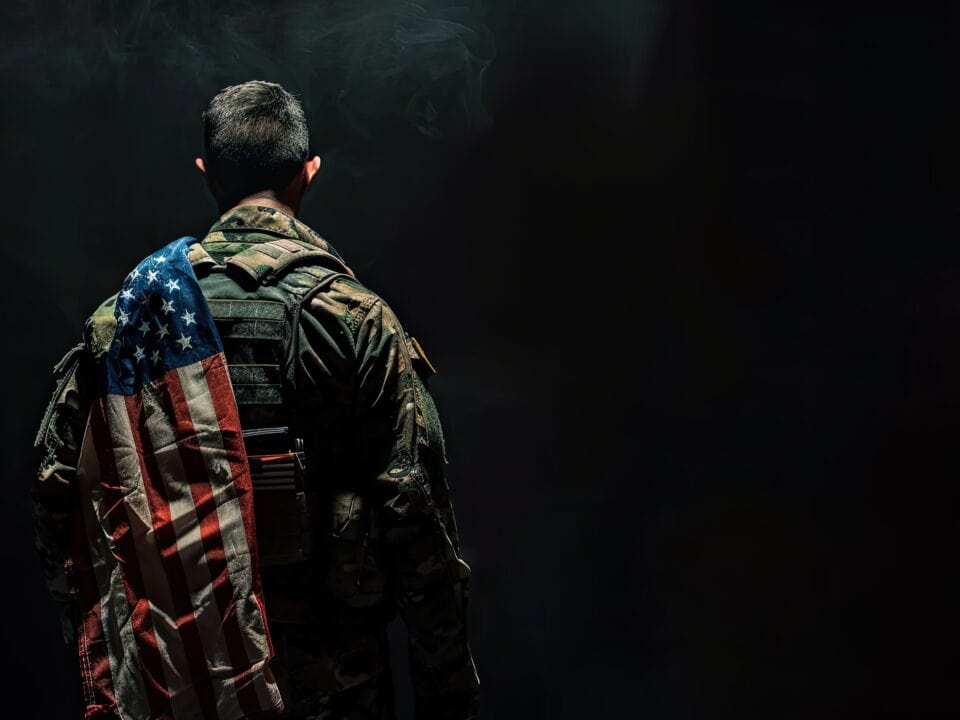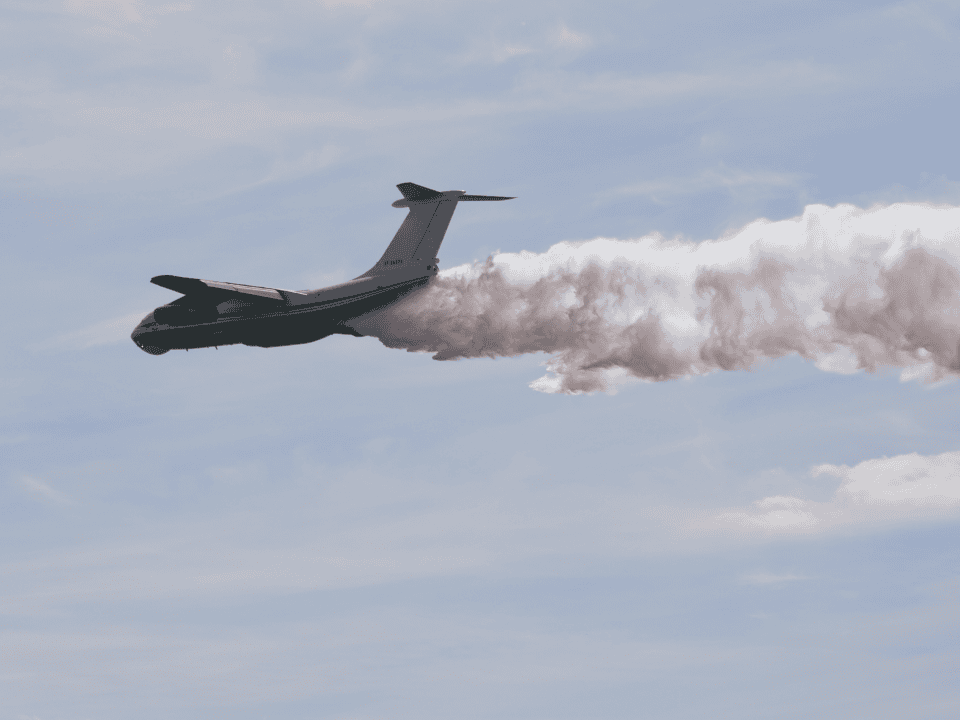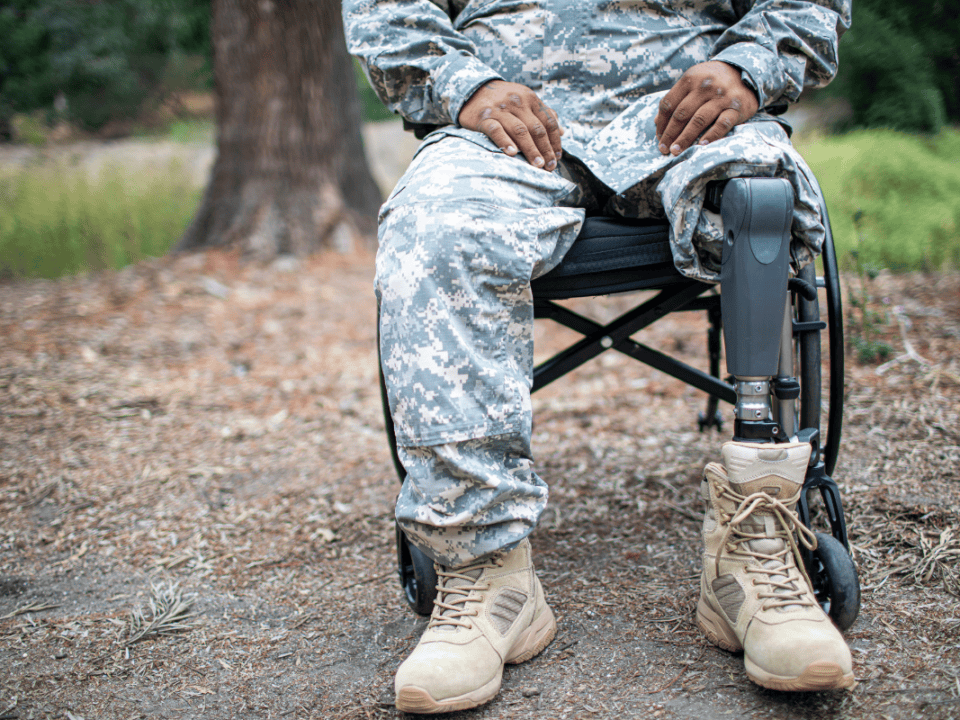 For the next couple of weeks, we’ll be taking time here at Bluestein Attorneys‘ blog to do something a little different. It’s essential when dealing with sensitive legal issues to get an understanding of the attorneys you’re looking to represent you — and nowhere is that more important than in Veterans Affairs Disability claims.
For the next couple of weeks, we’ll be taking time here at Bluestein Attorneys‘ blog to do something a little different. It’s essential when dealing with sensitive legal issues to get an understanding of the attorneys you’re looking to represent you — and nowhere is that more important than in Veterans Affairs Disability claims.
Our VA attorneys have agreed to answer a few questions that will help you get to know them a little bit better, and to understand why they are so passionate about defending and standing up for the rights of military veterans and servicemembers. First up, we’ll meet with Clyde Gore.
Can you give us a brief introduction and description of your military service?
I was commissioned through ROTC at Wofford College. While in ROTC, I applied for a program called the Army Educational Delay Program and was accepted. In that program, I was allowed to go to law school in an effort to reach my goal of becoming a member of the U.S. Army JAG Corps. After graduating law school from the University of South Carolina, I went on active duty with the U.S. Army.
I spent almost nine years on active duty. While on active duty, I held numerous positions and was stationed at a wide variety of installations, including a year in Iraq from July 2010 till July 2011.
I left active duty in August of 2014 to join BNTD and also to join the South Carolina National Guard, which I am still part of today. Currently, I hold the position of Chief of Military Justice. I continue to enjoy serving active duty soldiers and Veterans, both in my civilian practice and in my role with the South Carolina National Guard.
How is veterans law significantly different from other areas of practice?
The most notable difference, in my opinion, is the clientele. Our clients are all Veterans or family members of Veterans that have incredible stories to tell.
This is not to say that other people don’t have great stories to tell, but working day-in and day-out for clients who are true American heroes makes this job extremely unique and special. Whether these heroes are from the World War II, the Korean War, Vietnam, Iraq, or Afghanistan – they all have fascinating stories of heroism, selfless service, and valor.
Is there any advice you would give current active-duty military servicemembers to help them be prepared to navigate possible issues with the VA in the future?
The main advice that I would give any active duty personnel right now is to make sure all your medical conditions and injuries are documented and that they maintain a copy of their own medical records. Having these conditions documented while in service will help the veteran with the VA if those problems become bigger problems down the road, which more often than not they will be.
It’s amazing, in even today’s military, how prevalent the “tough it out” culture is. There are still many units and many people who look at going to sick-call as a weakness. We have come a long way in that regard, but we still have a long way to go.
The medical records database in the military is light-years better than what it used to be. With that in mind, it is not hard to have your medical records updated and kept current. Without evidence of an injury, condition, or disability occurring in service it is often times very difficult to even get a VA claim off the ground.
So get those conditions and injuries documented!
Do you find that there are negative impacts for veterans who wait to file for disability as opposed to filing right away?
Yes, absolutely. When I speak to people that are leaving active duty or have just left active duty, I tell them to file their claim immediately if they have not already done so.
Most of the people that I speak with still continue to have the “tough it out” mentality. I explain to them that you are probably okay right now, but years from now when those conditions or injuries are acting up you will want to have them on record at the VA, so if there is associated health care costs with them, they are covered by the VA.
When a Veteran waits a significant amount of time to file the claim, that gives rise to intervening causes for the conditions or disabilities. More times than not, the VA will use those intervening years and causes as reasons to deny claims. I can’t tell you how many times I have spoken with Vietnam Veterans or Korean War Veterans who state they wish they had not waited to file claims and that they had filed their claims immediately after leaving the service.
Would a veteran need to have been honorably discharged in order to file a claim?
The short answer to this question: “No, not necessarily.”
Each case is very different and that determination is based on the very case specific facts of that Veteran. There is not a categorical blanket answer to this question. There are several factors involved that could look very simple on their face, but can become quite complicated and fact specific upon further inspection.
Whenever I get asked this question, I suggest the Veteran come speak with us to allow us to see if we can assist in providing guidance.
How does your experience in the military help you represent Veterans in their disability claim?
Most Veterans I’ve talked to want an attorney who has the common experience of service: whether that be basic training, being a combat veteran, or even being stationed at the same base or installation. More so than any other area of the law that I have been involved in, VA clients want their attorney to be able to relate to them and their experiences.
Here at BNTD, we are able to do that which I believe gives me, Gene, and Kenny a level of credibility and trust with our clients that we would not otherwise possess.
What question should a Veteran ask when choosing a lawyer to assist with his or her VA Disability claim?
“How dedicated is your practice to VA Disability cases?” That is an important question in my mind because like most areas of the law, if you don’t work in this area of law every day and don’t think about the issues every day, then you are going to fall behind the evolving statutory and case law. Here at BNTD we have three attorneys doing VA work with a staff dedicated to working only on VA disability cases. This allows us to stay current on VA practice which allows us to better serve our clients.
Recently, a new rule was passed in South Carolina allowing military spouses who practice law and are certified in other states to gain limited admission to continue practicing in South Carolina while the servicemember is stationed here. I understand that you and Kenny did a great deal of work behind the scenes to help get the rule passed. Why did you believe it was important to do, and what effect do you hope it will have?
This was truly a team effort by the Military and Veterans Section of the South Carolina Bar.
This issue was brought to our section of the South Carolina Bar by an attorney who was the spouse of an Army Officer at Fort Jackson. She was the true catalyst for this issue and the section of the Bar was in full support of this rule.
As attorneys, we believed this was important as a way to show support to military spouses who often have to sacrifice their careers at the behest of their husband’s/wife’s service to the country.
Personally, when I was re-assigned to Fort Polk, Louisiana the bank my wife worked for was extremely flexible with her in regards to her position at the bank, ultimately allowing her to work from home until we returned to Columbia, SC. If that would not have been the case, I am not sure what we would have done. We would have had to make some extremely tough decisions as newlyweds.
So, I can personally relate to military families having to deal with this. We hope that it will allow lawyer-spouses of military personnel stationed in South Carolina to continue to advance their career and work in the legal field that they put so much time, money, resources, and effort in to pursuing. Also, we think that it is just one more way the state of South Carolina can show its love and appreciation for the military.
Thanks, Bennett, for taking the time to speak with us about your service and dedication to helping military veterans and servicemembers here in South Carolina! Next week, we’ll meet with Kenny Dojaquez about his history and service, so check back to meet more members of our VA team here at Bluestein Attorneys.
As always, if you are looking to file a claim or just need more information, Bluestein Attorneys is here to help, whether it’s for SC Vet Advocates, Workers’ Compensation, Personal Injury, or other legal issues. Give us a call at (803) 779-7599 or contact us online to request your FREE consultation today!




